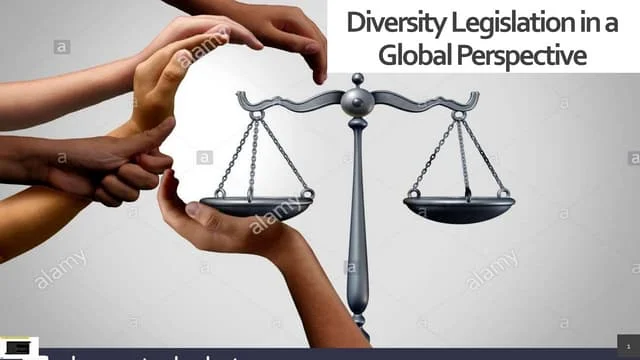Wampa Emmanuel
Cultural diversity is a hallmark of the human experience, influencing identities, moral systems, and societal structures. Across the globe, communities uphold traditions and practices rooted in centuries-old customs. However, the intersection of these cultural practices with national and international legal norms often generates tension. This article critically examines the interaction between culture and law, exploring how various legal systems have responded to traditional practices, and evaluating whether the law respects cultural diversity while upholding universal human rights.
One of the most debated cultural practices is female genital mutilation (FGM), practiced in parts of Africa, the Middle East, and Asia. Rooted in beliefs about purity, social acceptance, and marriageability, FGM has been defended by some communities as a cultural rite of passage. However, international law and many national constitutions treat FGM as a violation of women’s rights. The Convention on the Elimination of All Forms of Discrimination Against Women (CEDAW) and the Maputo Protocol explicitly condemn the practice. In R v DPP and Secretary of State for the Home Department, ex parte Wagaw, the UK courts upheld the right of the state to deny asylum to individuals from FGM-practicing regions if the applicant had failed to show a real risk of persecution. This demonstrates the role of law in restricting harmful cultural practices while balancing individual freedoms with the public interest.
Similarly, the cultural practice of child marriage, prevalent in South Asia and sub-Saharan Africa, conflicts with international legal norms. Though often rooted in poverty, social structures, or religious prescriptions, child marriage contravenes rights to education, health, and autonomy. The case of Re K (A Child) [2014] EWCA Civ 1181 in the UK exemplifies judicial intervention where the court prevented a Bangladeshi family from forcing a teenage girl into marriage. The law in this context served as a protective tool to shield vulnerable individuals from coercive cultural practices.
In the context of indigenous legal systems, many countries have made constitutional or statutory provisions for customary law. In South Africa, for instance, the Constitution recognizes customary law as a source of law, provided it is not inconsistent with the Bill of Rights. This dual recognition has allowed traditional courts to adjudicate family and land disputes based on customary principles. Yet, this coexistence has been controversial. In Bhe v Magistrate, Khayelitsha (2004) ZACC 17, the Constitutional Court held that the customary rule of male primogeniture, which excluded women from inheritance, was unconstitutional. This case underscored the judiciary’s commitment to gender equality, even when confronting deep-seated cultural norms.
Polygamy, another cultural practice with legal ramifications, is recognized under Islamic and customary law in many jurisdictions, such as Nigeria and parts of India. However, it remains prohibited under many Western legal systems. The Canadian case Reference re: Section 293 of the Criminal Code of Canada, 2011 BCSC 1588 examined the constitutionality of Canada’s polygamy ban. The British Columbia Supreme Court upheld the ban, reasoning that the harms associated with polygamy, including gender inequality and exploitation, justified its criminalization. Here, the law acted to affirm societal values of equality and dignity, overriding cultural justification.
Some legal systems have also shown deference to cultural practices. In New Zealand, the legal recognition of the Māori tikanga (customary values and practices) has been significant. Courts increasingly consider tikanga in legal reasoning, especially in property and criminal cases. The Ngati Apa v Attorney-General [2003] 3 NZLR 643 decision marked a turning point in the legal status of Māori customary rights over foreshore and seabed, showing a move towards inclusive legal pluralism. By acknowledging indigenous values, New Zealand’s legal system demonstrates an evolving approach to legal multiculturalism.
In the United States, religious freedom and cultural expression are constitutionally protected, yet they face limitations when public policy is at stake. The controversial case Employment Division v Smith, 494 U.S. 872 (1990) involved Native Americans dismissed from their jobs for ingesting peyote as part of a religious ceremony. The Supreme Court held that generally applicable laws could limit religious practices, even if such laws incidentally burdened religion. The backlash led to the enactment of the Religious Freedom Restoration Act (1993), aiming to strengthen legal protection for religious and cultural expression.
However, cultural defenses in criminal law remain contentious. Some defendants have invoked cultural background to mitigate responsibility for crimes such as domestic violence or honor killings. In People v Kimura (1985), a Japanese woman who drowned her children and attempted suicide was sentenced leniently by U.S. courts after evidence of cultural pressures and mental distress were considered. Critics argue that such cultural defenses risk undermining the universality of human rights and create a double standard in justice systems.
Despite these challenges, international legal instruments increasingly stress the need for a balanced approach. Article 27 of the International Covenant on Civil and Political Rights (ICCPR) protects the rights of minorities to enjoy their culture, while Article 5 of the UNESCO Declaration on Cultural Diversity emphasizes that cultural rights must not infringe upon fundamental freedoms. The task of legal systems is to mediate these competing demands—protecting cultural autonomy while ensuring legal equality and human dignity.
In conclusion, the global legal response to cultural diversity is characterized by a delicate balancing act. While some legal systems accommodate and even incorporate cultural practices, others impose restrictions to protect universal human rights. The jurisprudence reveals an emerging consensus: cultural practices must be respected but not at the expense of fundamental rights. As societies become increasingly multicultural, the challenge for the law is to foster coexistence through principled pluralism, ensuring that cultural heritage enriches rather than endangers justice.
BY: Wampa Emmanuel
Nkumba University
0779816870
Ewampa7@gmail.com





















Discussion about this post